Developing human resources, especially high-quality human resources, is identified by the province as one of the three strategic breakthroughs, an important factor, a solid foundation creating momentum for sustainable development. From very early on, the province has paid attention to developing high-quality human resources, with the issuance of many separate mechanisms and policies, aiming to attract workers and develop human resources in the area.

The province has proactively developed many mechanisms and policies for human resource development, associated with the shift in labor structure according to the orientation and planning of the province's socio-economic development. Notable in the previous period were Resolution No. 15-NQ/TU (dated June 9, 2014) of the Provincial Party Committee on promoting administrative reform and developing high-quality human resources of the province by 2020, with a vision to 2030; Decision No. 2704/QD-UBND (dated November 17, 2014) of the Provincial People's Committee approving the province's human resource development plan by 2020, with a vision to 2030; Decision No. 293/QD-UBND (dated January 30, 2015) of the Provincial People's Committee approving the project on training, fostering, improving the quality and comprehensively developing the province's human resources by 2020.
In the recent period, Resolution No. 35/2021/NQ-HDND of the Provincial People's Council on regulating policies to attract and train high-quality human resources at Ha Long University, Quang Ninh Vietnam - Korea College, Quang Ninh Medical College; Plan No. 117/KH-UBND (dated May 13, 2022) of the Provincial People's Committee implementing Decision No. 146/QD-TTg dated January 28, 2022 of the Prime Minister approving the Project to raise awareness, popularize skills and develop human resources for national digital transformation by 2025, with a vision to 2030.
The province also has many policies to attract and support students studying majors that serve the province's development; rewards talented people and excellent students; supports vocational training in the list of encouraged training occupations and supports cultural tuition fees for secondary school graduates to continue studying at intermediate and college levels in the province... At the same time, it promotes regional linkages, domestic and international cooperation in human resource development.

Thanks to specific policies, mechanisms and adequate investment resources, the quality of the province's human resources is increasingly improved. The rate of trained workers increases annually (from 62% in 2014 to 86.46% in 2023). The stature and technical expertise of workers gradually meet the needs of society and the labor market, contributing to the positive shift in the province's labor structure, contributing to improving the investment and business environment, and improving the PCI, PAR Index, and PAPI indicators. The province's training and enrollment work reaches an average of over 38,000 students/year, basically meeting the human resource needs of businesses and the needs of society. The rate of students having jobs after training has reached over 85%. In the period of 2021-2023, the province has 603 training and fostering classes for civil servants in the province in the form of inviting foreign experts and lecturers to teach; 28 training and fostering classes for civil servants abroad; training and fostering about 18,500 people for the economic sectors of agriculture, industry, trade, construction, tourism, etc.
In particular, in order to meet the needs of the labor market, the needs of learners and keep up with practical requirements, on April 4, 2024, the Provincial People's Committee issued Decision No. 1061/QD-UBND approving the Provincial Human Resources Development Project to 2025, with a vision to 2030. The project is expected to create a breakthrough in the development of high-quality human resources, creating momentum to help the province become a centrally-run city before 2030... According to the Project, by the end of 2025, the province aims to have a total of 798,280 workers; the rate of trained workers is 87.5%; the number of workers needing new training to be granted certificates annually is 25,500 people; the rate of civil servants and public employees with postgraduate qualifications is 16.4%. Human resource structure of sectors: Region I decreased to 22.11%; Region II decreased to 28.64%; Region III increased to 49.25%. 62,900 civil servants and public employees were trained and fostered domestically, equivalent to about 1,005 classes in the following fields: State management, politics, foreign languages, information technology; 750 civil servants and public employees were trained and fostered in the province by inviting foreign experts and lecturers to teach; 1,100 civil servants and public employees were trained and fostered abroad, equivalent to about 55 classes. By the end of 2030, the province's human resources will be about 874,250 people. The rate of trained workers will reach about 92.5%. The structure of human resources by industry: Sector I is 16.62%; Sector II is 27.68%; Sector III is 55.7%.
To effectively implement the Project, the province has developed many groups of solutions. In particular, it focuses on researching and developing a number of mechanisms and policies for developing the province's human resources. In particular, it develops programs and plans for recruiting, training and fostering civil servants and local workers, focusing on a number of areas: Human resource management, finance, public assets, key sectors and fields of the province; building a shared human resource database on human resource needs and labor needs of the province to serve the work of policy making, attracting, training, fostering, using and managing human resources.
Along with that, focus on training, improving the quality of human resources at the commune level; mobilizing social and business resources to establish a scholarship fund to support training and human resource development; strengthening training links between schools and businesses; training to improve the province's digital transformation capacity.
Quang Ninh is one of the economic locomotives of the country, concentrating a large labor force, therefore training high-quality human resources is considered an important solution to increase labor productivity and product quality. This is also the basis for Quang Ninh to realize the goal of becoming a modern service and industrial province, one of the dynamic and comprehensive development centers of the North.
Source


![[Photo] Russian military power on display at parade celebrating 80 years of victory over fascism](https://vphoto.vietnam.vn/thumb/1200x675/vietnam/resource/IMAGE/2025/5/9/ce054c3a71b74b1da3be310973aebcfd)
![[Photo] Magical moment of double five-colored clouds on Ba Den mountain on the day of the Buddha's relic procession](https://vphoto.vietnam.vn/thumb/1200x675/vietnam/resource/IMAGE/2025/5/9/7a710556965c413397f9e38ac9708d2f)

![[Photo] Prime Minister Pham Minh Chinh chairs a special Government meeting on the arrangement of administrative units at all levels.](https://vphoto.vietnam.vn/thumb/1200x675/vietnam/resource/IMAGE/2025/5/9/6a22e6a997424870abfb39817bb9bb6c)

![[Photo] General Secretary To Lam and international leaders attend the parade celebrating the 80th anniversary of the victory over fascism in Russia](https://vphoto.vietnam.vn/thumb/1200x675/vietnam/resource/IMAGE/2025/5/9/4ec77ed7629a45c79d6e8aa952f20dd3)
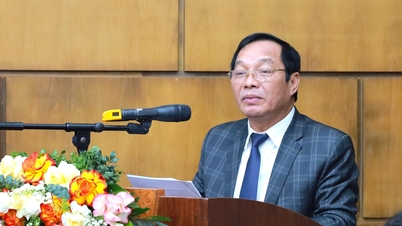




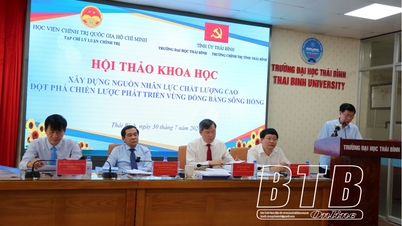

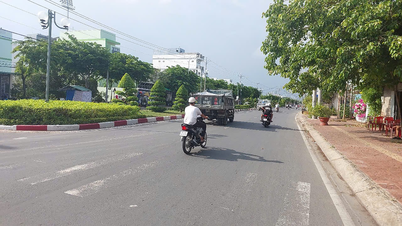


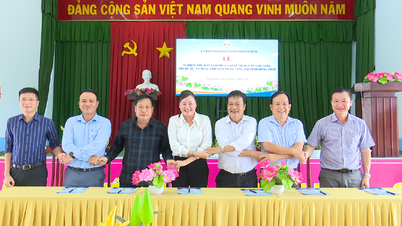











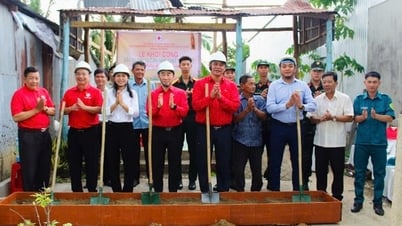






































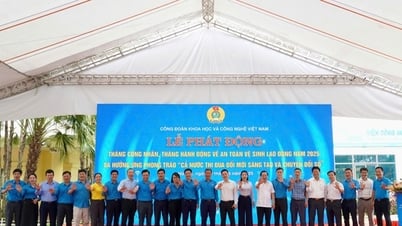



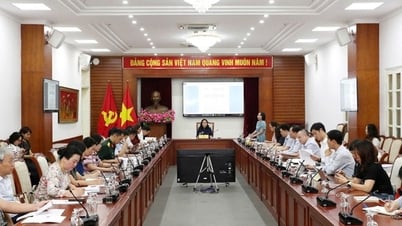

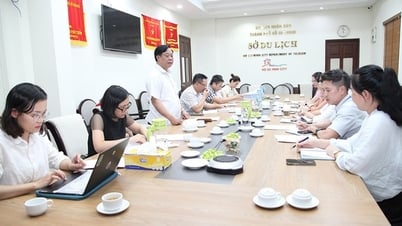
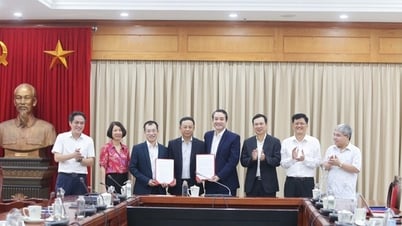
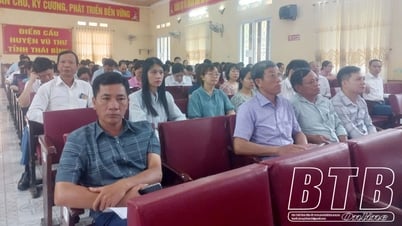



















Comment (0)